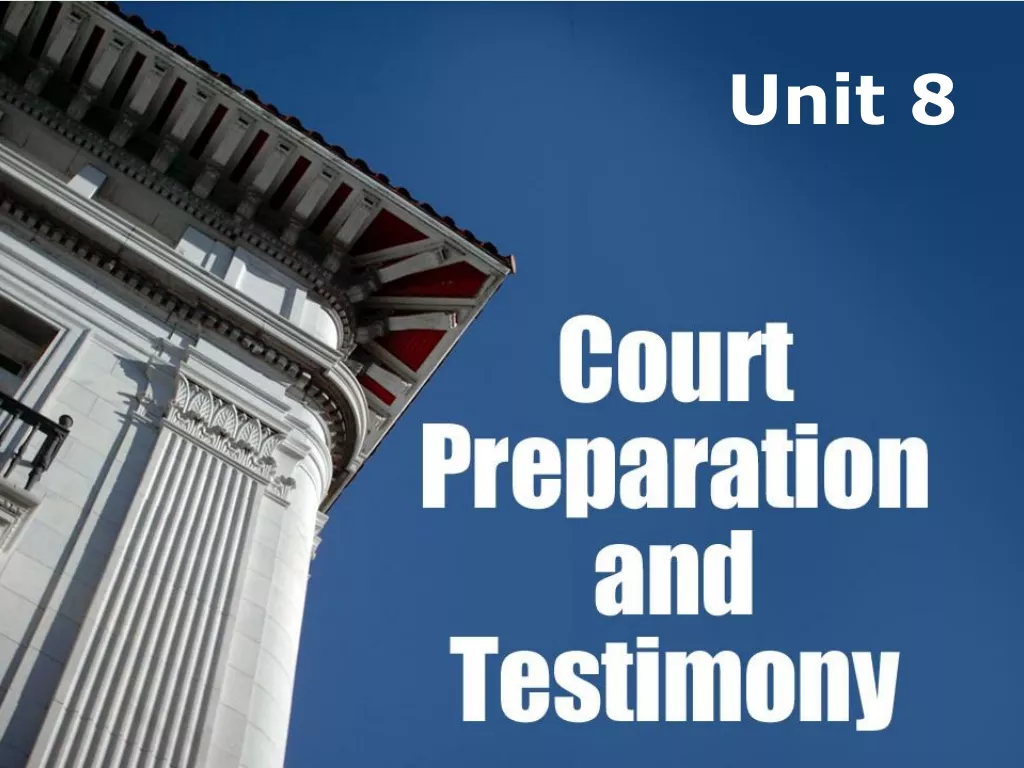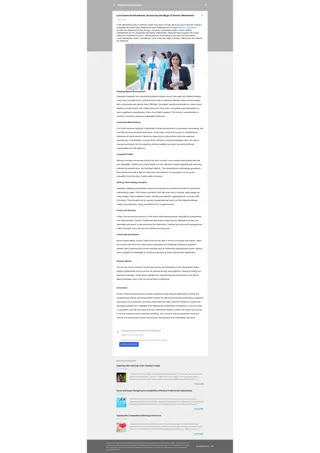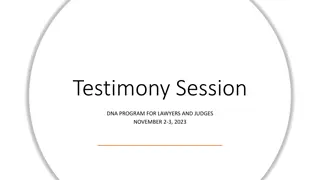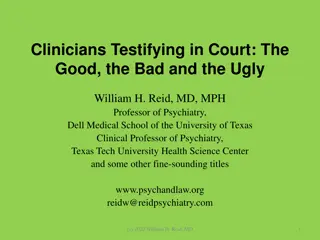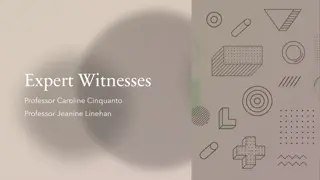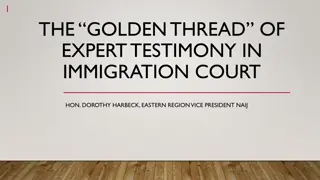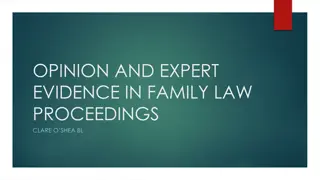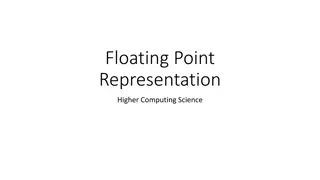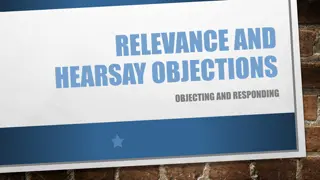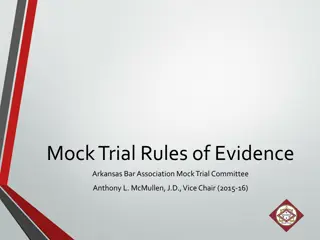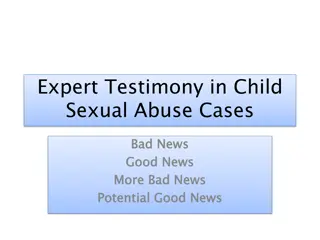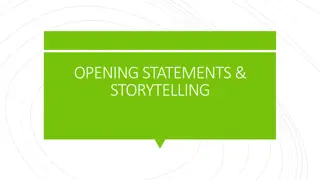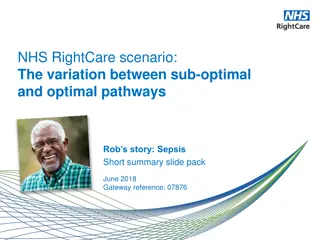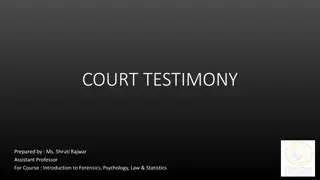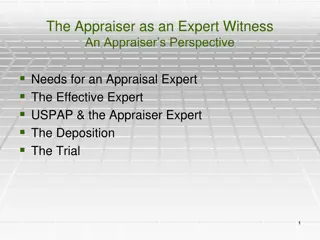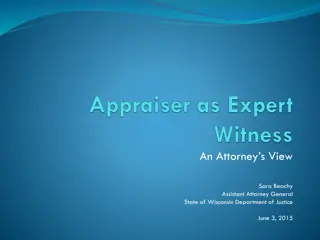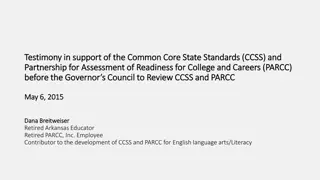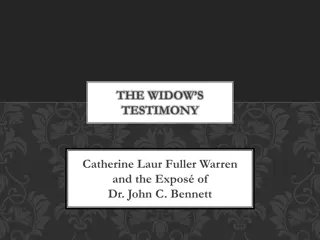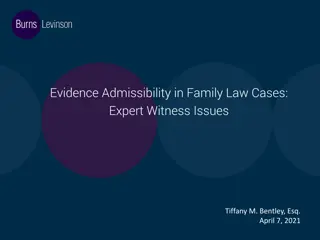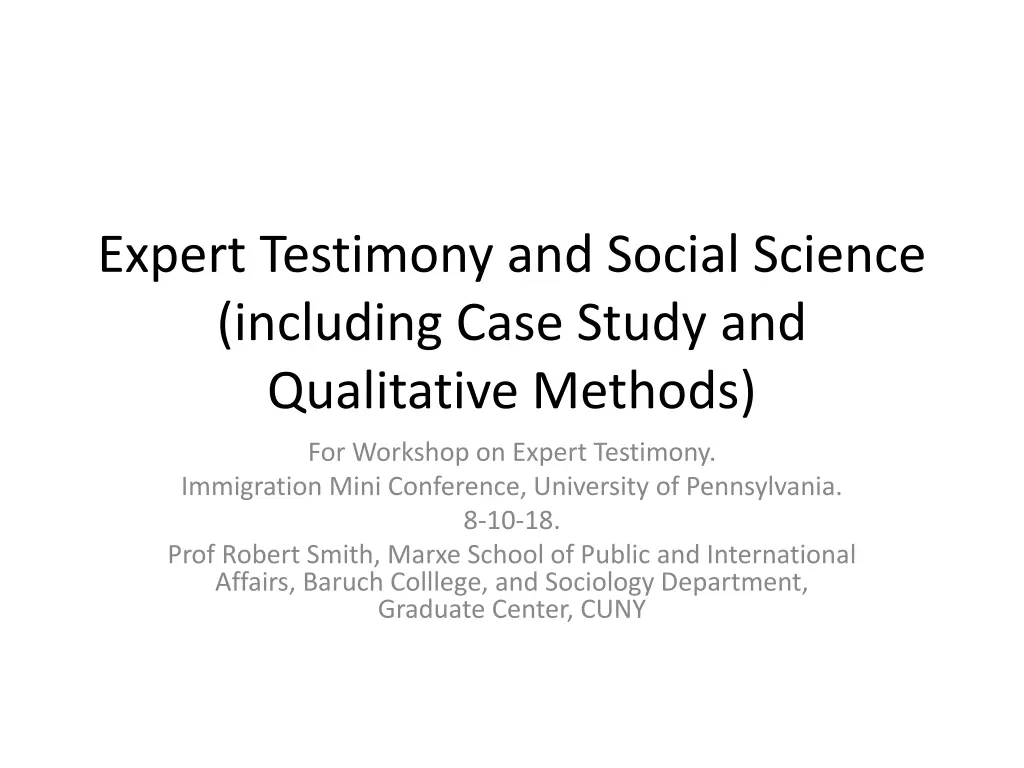
Expert Testimony & Social Science in Immigration Cases
Explore the role of expert testimony and social science in immigration cases, detailing how prior experience can influence outcomes, the importance of equity in immigration court hearings, and standards for scientific analysis using social science methods.
Download Presentation

Please find below an Image/Link to download the presentation.
The content on the website is provided AS IS for your information and personal use only. It may not be sold, licensed, or shared on other websites without obtaining consent from the author. If you encounter any issues during the download, it is possible that the publisher has removed the file from their server.
You are allowed to download the files provided on this website for personal or commercial use, subject to the condition that they are used lawfully. All files are the property of their respective owners.
The content on the website is provided AS IS for your information and personal use only. It may not be sold, licensed, or shared on other websites without obtaining consent from the author.
E N D
Presentation Transcript
Expert Testimony and Social Science (including Case Study and Qualitative Methods) For Workshop on Expert Testimony. Immigration Mini Conference, University of Pennsylvania. 8-10-18. Prof Robert Smith, Marxe School of Public and International Affairs, Baruch Colllege, and Sociology Department, Graduate Center, CUNY
Prior Experience as Expert Testified in deportation cases -- 25 years. Testified in Wrongful Death Cases, including for an undocumented youth, pre DACA Testified in Voting Rights Trial US v Port Chester 2007. Consulted on other cases. Under-recognized venue for putting our skills as social scientists to work.
Social Scientists say people pay attention better with images.
Immigration Court Testimony Equity in Case Comes from Harm (Extreme Unusual Harm) to a US Citizen or Legal Permanent Resident, not to the deportee. Eg, harm to USC child, if their father is deported, OR if they have to go back to Mexico (or other country).
Standards for Scientific Analysis using Social Science Analysis. Spirit of Daubert obtains, but more flexibility Can use hearsay evidence, knowledge of country etc. Key resonance: Judge s decisions are Case Studies, so experts should do a Case Study of the case. Expert must be established academic, and be methodologically and epistemically strong. Defend scholarly work and declaration. Why did not you run alternative scenarios? Why can t you calculate an error rate?
Equity in Immigration Court Hearings Country Conditions, broadly interpreted, but analyzed with respect to the specific case. Kidnapping threat; why a target? Immigrant Family System, understood well enough to make an argument about how alternative scenarios would affect USC kids or USC wife? Must be INCORPORATED into analysis of that specific case.
Make the Case for the Case Cases are made stronger by Case Study Methods -- First Step: deep case knowledge, re country and family. -- Draw on all relevant literature (eg medicine, psych, etc) for the case. -- Draw on appropriate, reliable sources, US or Mexican (home country) census, public docs, news reports. -- Web offers access to local news, including w photos. -- Tie country conditions to specific stories in person s history, as facts allow: kidnapping in Mexico of returned migrants. -- Draw on your local knowledge and scholarly expertise.
Talk to others with more knowledge of case, as you would in a case study USE Doctors and Teachers expertise to help make case. -- usually more open to professor than lawyer calling them; can write letters after. Draw on your colleagues work to make the case -- Jeremy Slack: generous role model Consult Experts or even government officials in home country re threats, etc, as appropiate.
Consider Alternatives the judge and opposing counsel may ask about If the respondent is deported, and his family stays behind what harm to USC? If the respondent is deported and USC family goes with him what harm? What specifics of the case resonate with larger societal or other processes? Underlines the need to get thorough family and respondent history, and ask about issues you know about from your research (kidnapping etc). Often, lawyers do not know to ask (or how to ask) re key issues that can strengthen case (rose status). Know Lawyer s strategy; practice testimony if possible.
Expert Testimony under-recognized way to use social scientific skills. Thank you.

